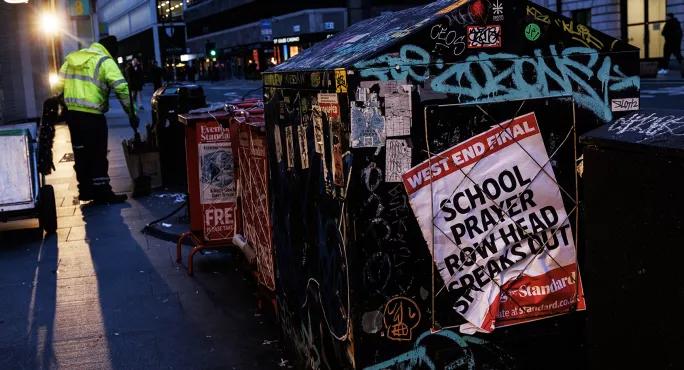Michaela wins High Court case over prayer ban

A Muslim student at Michaela Community School in London has lost a High Court challenge against its ban on prayer rituals.
The student, who cannot be named, took legal action against Michaela Community School in Wembley - which is led by Katharine Birbalsingh, who has been described as “Britain’s strictest headteacher” - earlier this year, claiming the school’s policy was discriminatory and “uniquely” affected her faith because of the rituals of the Muslim faith.
In an 83-page judgment dismissing the student’s case today, Mr Justice Linden said: “It seems to me that this is a case … where the claimant at the very least impliedly accepted, when she enrolled at the school, that she would be subject to restrictions on her ability to manifest her religion.
“She knew that the school is secular and her own evidence is that her mother wished her to go there because it was known to be strict.
“She herself says that, long before the prayer ritual policy was introduced, she and her friends believed that prayer was not permitted at school and she therefore made up for missed prayers when she got home.”
Michaela Community School’s prayer ban
The case against the free school led by Ms Birbalsingh, the government’s former social mobility tsar, was heard at the High Court in London in January.
The student alleged that the school’s stance on prayer, which is one of the five pillars of Islam, was “the kind of discrimination which makes religious minorities feel alienated from society”, a judge was told.
- Katharine Birbalsingh: “I don’t trust them - they’re kids”
- Social mobility tsar: Commission to investigate “educational strategies”
- Resignation: New social mobility tsar as Birbalsingh resigns
The student’s lawyers said that the “prayer ban” unlawfully breached her right to religious freedom, adding that, for her, it was “like somebody saying they don’t feel like I properly belong here”.
The court was told that the student, referred to only as TTT, was making a “modest” request to be allowed to pray for around five minutes at lunch time, on dates when faith rules required it, but not during lessons.
The student also challenged decisions to temporarily suspend her from school, which she claimed were unfair.
The school’s lawyers claimed its prayer policy was “justified” and “proportionate” after it faced death and bomb threats linked to religious observance on site.
They added that the governors and headteacher at the school - which has 700 students, about half of whom are Muslim - had “a margin of latitude, discretion or judgement” over its policies.
The student who brought the legal challenge said in a statement provided by law firm Simpson Millar that she was “disappointed” by the outcome of the case.
She said she did not agree that “it would be too hard for the school to accommodate pupils who wished to pray in the lunch break”.
The student added: “The school is very well run and generally very good at managing everything. The school doesn’t wish to allow pupils to pray, has chosen a different path, and the judge has found in their favour.”
Regarding the two-day court hearing, Ms Birbalsingh said that the school decided “to stop prayer rituals when some pupils started them, against a backdrop of events including violence, intimidation and appalling racial harassment of our teachers”.
‘A victory for all schools’
Responding to the judgment, Ms Birbalsingh said it was “a victory for all schools”.
“If parents do not like what Michaela is, they do not need to send their children to us,” she added.
“At Michaela we expect all religions and all races to make the necessary sacrifices to enable our school to thrive. The vast majority do so without complaint.”
The court was told that Ms Birbalsingh first introduced the policy in March last year, with it being backed by the governing body in May. In March last year up to 30 students began praying in the school’s yard.
Lawyers for the school said students seen praying outside contributed to a “concerted campaign” on social media against the school’s approach to religion. The court heard that the school was targeted with death threats, abuse, “false” allegations of Islamophobia and a “bomb hoax”.
Reversing the school’s “emergency” ban would again expose it to “an unacceptable risk of threats”, its lawyers said, adding that the policy avoided “the logistical disruption and detriments to other school activities”.
Education secretary Gillian Keegan, responding to today’s judgment, said the government “has always been clear that heads are best placed to take decisions on what is permitted in their school on these matters”, and “this judgment confirms this”.
Ms Keegan said that the court ruling should “give all school leaders confidence in making the right decision for their school, while prioritising tolerance and respect between those of different faiths and none”.
For the latest education news and analysis delivered directly to your inbox every weekday morning, sign up to the Tes Daily newsletter
Keep reading for just £1 per month
You've reached your limit of free articles this month. Subscribe for £1 per month for three months and get:
- Unlimited access to all Tes magazine content
- Exclusive subscriber-only stories
- Award-winning email newsletters



